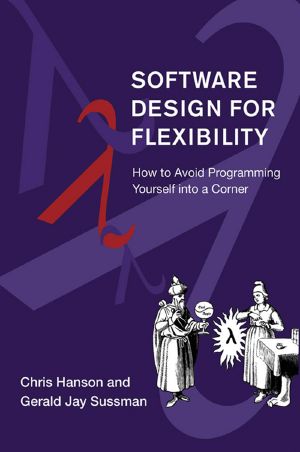Software Design for Flexibility, How to Avoid Programming Yourself into a Corner

- Authors
- Chris Hanson & Gerald Sussman
- Publisher
- MIT Press
- Tags
- computer program design; symbolic programming; flexible design; domain-specific languages; constraints; additive programming; evolvable design; generic procedures; combinators; evaluators; provenance; dependencies; pattern matching; unification; rule systems; backtracking; propagation; lisp; scheme
- Date
- 2021-02-17T00:00:00+00:00
- Size
- 1.04 MB
- Lang
- en
Strategies for building large systems that can be easily adapted for new situations with only minor programming modifications.Time pressures encourage programmers to write code that works well for a narrow purpose, with no room to grow. But the best systems are evolvable; they can be adapted for new situations by adding code, rather than changing the existing code. The authors describe techniques they have found effectiveover their combined 100-plus years of programming experiencethat will help programmers avoid programming themselves into corners.The authors explore ways to enhance flexibility by: Organizing systems using combinators to compose mix-and-match parts, ranging from small functions to whole arithmetics, with standardized interfaces Augmenting data with independent annotation layers, such as units of measurement or provenance Combining independent pieces of partial information using unification or propagation Separating...